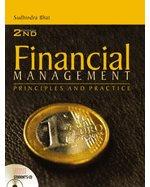Answered step by step
Verified Expert Solution
Question
1 Approved Answer
An individual has a utility function described by U(Y) = In(Y). There exists a risky asset that is forecasted to pay either of two returns

An individual has a utility function described by U(Y) = In(Y). There exists a risky asset that is forecasted to pay either of two returns 72 >r with probabilities n and 1-re respectively. Let us assume that r2 > >*and that E() = n/2 + (1 t)r > ry. The individual invests the amount a out of his initial wealth Yo in the risky asset. Write down the expected utility to be maximized by the individual investor. Write down the first order condition solved by the optimal amount invested in the risky asset. Rewrite the FOC such that a -(1+r)[E[F] r), > 0. Y (11-r)(2-) When would the investor want to borrow at the risk free rate in order to reinvest the proceeds in the risky asset? An individual has a utility function described by U(Y) = In(Y). There exists a risky asset that is forecasted to pay either of two returns 72 >r with probabilities n and 1-re respectively. Let us assume that r2 > >*and that E() = n/2 + (1 t)r > ry. The individual invests the amount a out of his initial wealth Yo in the risky asset. Write down the expected utility to be maximized by the individual investor. Write down the first order condition solved by the optimal amount invested in the risky asset. Rewrite the FOC such that a -(1+r)[E[F] r), > 0. Y (11-r)(2-) When would the investor want to borrow at the risk free rate in order to reinvest the proceeds in the risky asset
Step by Step Solution
There are 3 Steps involved in it
Step: 1

Get Instant Access to Expert-Tailored Solutions
See step-by-step solutions with expert insights and AI powered tools for academic success
Step: 2

Step: 3

Ace Your Homework with AI
Get the answers you need in no time with our AI-driven, step-by-step assistance
Get Started


